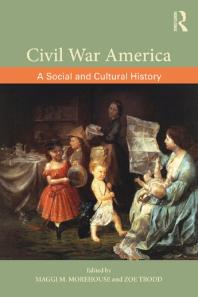
"Primary sources are the evidence of history, original records or objects created by participants or observers at the time historical events occurred or even well after events, as in memoirs and oral histories. Primary sources may include but are not limited to: letters, manuscripts, diaries, journals, newspapers, maps, speeches, interviews, documents produced by government agencies, photographs, audio or video recordings, born-digital items (e.g. emails), research data, and objects or artifacts (such as works of art or ancient roads, buildings, tools, and weapons). These sources serve as the raw materials historians use to interpret and analyze the past." (Source: https://www.ala.org/rusa/sections/history/resources/primarysources)
Secondary Sources
These sources offer an analysis or restatement of primary sources. They often try to describe or explain primary sources. They tend to be works which summarize, interpret, reorganize, or otherwise provide an added value to a primary source.
Examples
Textbooks, edited works, books and articles that interpret or review research works, histories, biographies, literary criticism and interpretation, reviews of law and legislation, political analyses and commentaries.
Tertiary Sources
These are sources that index, abstract, organize, compile, or digest other sources. Some reference materials and textbooks are considered tertiary sources when their chief purpose is to list, summarize or simply repackage ideas or other information. Tertiary sources are usually not credited to a particular author.
Examples
Dictionaries/encyclopedias (may also be secondary), almanacs, fact books, Wikipedia, bibliographies (may also be secondary), directories, guidebooks, manuals, handbooks, and textbooks (may be secondary), indexing and abstracting sources.
Source: https://crk.umn.edu/library/primary-secondary-and-tertiary-sources
 Civil War America
by
Civil War America
by
 The Schlager Anthology of Black America
by
The Schlager Anthology of Black America
by
 The Schlager Anthology of the Gilded Age and Progressive Era
by
The Schlager Anthology of the Gilded Age and Progressive Era
by
Use the General Keyword search box and type in your topic plus one of the following words or phrases:
Diar* (this retrieves Diary and Diaries)
History Source*
History Document*
Oral Histor* (this retrieves History and Histories)
Personal Narrative*
History Archive*
Correspondence
Letter*
Speech*
Primary source*
Note: Use of the * at the end of a word will search for singular and plural forms.
 Twentieth-Century America
by
Twentieth-Century America
by